Aussie men battling to save young men from rise of toxic masculinity
He’s a tough-talking anti-feminist, a poster boy for toxic masculinity and a cigar-smoking former kickboxer with one of the most googled names on the planet. Even if you haven’t heard of Andrew Tate, the teenagers in your life have, and experts are very concerned.
QLD News
Don't miss out on the headlines from QLD News. Followed categories will be added to My News.
Once upon a time it used to be a porno magazine smuggled into the schoolyard, taken by stealth from a big brother’s bedside drawer or garage cupboard, and passed around at lunchtime among a group of hormone raging, salivating teenage boys.
But those days – before social media and influencers and AI algorithms and mobile phones in every pocket – were simple. Now, young men, questioning what it means to be a man and their place in the world, and with a void of healthy male role models, take their teachings from the internet, with brash, flashy alpha male influencers hooking their attention.
The latest incarnation is Andrew Tate – the tough talking anti-feminist, so-called mega misogynist and king of “toxic masculinity”.

Tate, a former professional kickboxer turned social media influencer sprouting extreme misogyny, is currently detained in a Romanian jail under investigation for human trafficking, rape and forming an organised crime group. But he is also in your young son’s pocket, in his schoolyard and in the privacy of his bedroom. He is there on Tiktok and Snapchat and any other social media of choice. He has infiltrated your son’s brain whether you like it or not.
While Tate, whose followers call him “Top G’’ (top gangster), might be the misogynist of the moment, disturbingly, he is not the only one. Experts say Tate is part of a bigger online ecosystem of anti-women movements in what is known as the “manosphere’’, an arena of websites, podcasts and forums of pro-male supremacy, male disenfranchisement and men’s rights, where there is, among many things, a wish to return to times of “traditional masculinity’’ with defined gender roles and when phrases like equal opportunity and gender pay gap and sexual harassment had not yet “infected” the world.
Tate found notoriety after being kicked off reality TV show Big Brother UK in 2016 when a video surfaced of him physically and verbally abusing his girlfriend and hitting her with a belt (they both later said it was consensual).
He set up his (now defunct) online Hustlers University, claiming to help subscribers become rich in the digital age and describing it as the “biggest online educational platform in the world’’. “Students’’ were encouraged to post his content to social media and recruit others to his website, making a commission for doing so.
Tate’s cigar-smoking, playboy image espousing male dominance and female submission – with inflammatory talk of choking and hitting women and referring to them as “property’’ of men; with tweets that rape victims must “bear some responsibility’’ for their attacks; with flaunting his luxurious lifestyle and collection of sports cars and guns – became highly prominent in 2022 with the #Andrewtate hashtag amassing about 12 billion views on TikTok. Google trends for 2022 show he was in the top 10 most googled people globally.
In August, 2022, Tate, at the time already banned from Twitter, was removed from social media sites YouTube, Facebook, Instagram and TikTok for violating policies. In November, Elon Musk reinstated Tate’s Twitter account after taking over the company.

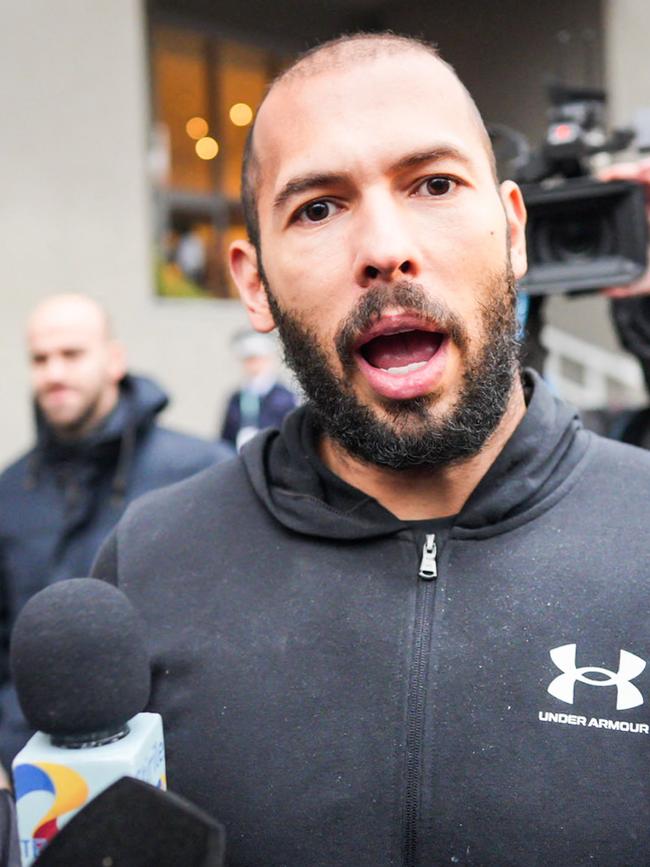
Despite social media bans and his arrest, Tate continues to be an internet presence with a swath of followers sharing his content and feeding from a narrative of conspiracy theories about the government trying to silence him including repeated, bizarre references to the 1999 movie, The Matrix, about the simulated world most see as opposed to the “real world”. (After his arrest, a tweet on Tate’s account said: “The Matrix sent their agents”.)
At a schoolyard level, Tate’s influence can be seen with students making their own TikTok clips mimicking his behaviour or adopting his language or “Tate-isms”. And with social media algorithms, once a site is viewed, similar content will be suggested thereafter. The concept of “algorithmic radicalisation” pushes social media users towards progressively more extreme content over time.
Australian mental health charity, The Man Cave, that supports teenage boys and young men with safe and healthy “Rite of Passage” into manhood programs across NSW and Victoria, last year surveyed almost 1400 young men between September and November. It found: 92 per cent knew of Andrew Tate; a quarter looked up to him as a role model; and more than a third said he was relatable.
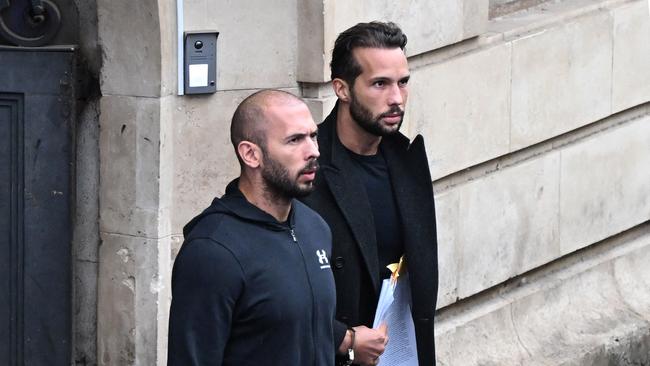
White Ribbon Australia, which works to eliminate gendered violence, last year engaged with 3000 young men through its weekly You Can Ask That program.
National director Allan Ball says one of the main topics raised was Tate.
Parents, almost always oblivious to the online places that attract their children, need only know one thing: if your teenage child has access to the internet, then they know about Andrew Tate. He is a key influencer of this age group.
This month, Tate, 36, a dual British-US citizen, imprisoned with his brother Tristan, 34, had his arrest warrant extended for another 30 days by a court in the Romanian capital Bucharest.
The effects of Tate’s messages are ongoing and community leaders, youth workers, domestic abuse charities and teachers are speaking out, alarmed at his influence.
Andrew Tate has previously boasted he is “unstoppable’’. Parents are being warned to not be complacent.
In generations past, boys grew up with a network of men around them – be it at school, church, youth groups, neighbours, extended family – where many people played a role in their upbringing and helped set the personal standards and values by which they lived.
But today, with more broken families, longer working hours, a more crowded school curriculum, less participation in youth groups, the advent of mobile phones, social media, and the internet as the most readily accessible place for young people to access information, it is different.
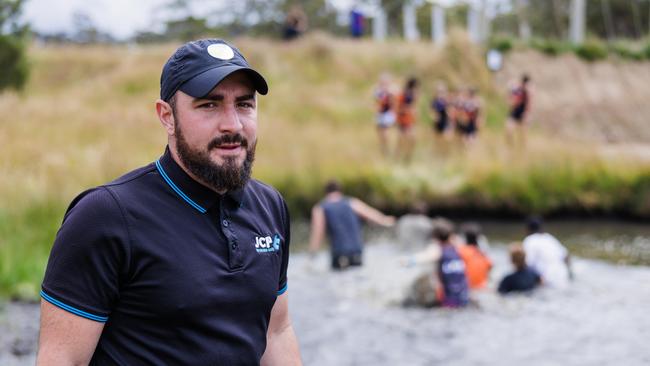
And for any adult who might now consider engaging with youth, there are also various processes and systems in place – including police checks and applications for blue cards, or working with children or vulnerable people – and so it’s a bit more complicated. While that is accepted as a positive and essential step forward, it is still a “small barrier” to engaging good men.
Will Smith is on the frontline with young people, as the executive director of JCP Youth, an independent, self-funded charity of development camps and mentorship programs for vulnerable and at-risk boys aged 11-17 years. He also runs leadership programs in schools in Tasmania, Victoria, NSW and Queensland, interacting with about 15,000 young people a year. His camps are physically and mentally challenging – participants jump off 10m platforms into water, climb mountains carrying blocks of wood above their head, they do mud runs and gym sessions – but they are not bootcamps or about punishment.
It’s about “showcasing their potential” and what kids can do away from a screen.
Smith, 30, based in Launceston, Tasmania, has a policing background, as a former tactical operator with the Special Operations Group. He says adult engagement with young people has “significantly dropped off” and there is a desperate need for positive male role models.
“We’ve changed a lot as a society. The rules and restrictions around engaging with young people are completely necessary and need to be there but it’s a turn-off for people to walk down the street and engage with some of their neighbours or to help out at the local footy club,” he says.

“If I put out a request for volunteers on a program, 90 per cent of applicants will be female. We struggle to get positive male role models, and young people, especially young men, desperately need positive male influence.
“Young people seek out validation and if they are not going to get it from a positive male role model, they will go out and find it. They are actually building their standards on where they spend the predominant amount of their time which is on their screen.”
A 2021 report by Reviews.org found the average screen time of Australians is 5.5 hours a day, equating to a staggering 16.6 years of an average lifespan, with Generation Z (born 1997-2012) averaging 7.3 hours a day.
But a recent survey of the participants in Smith’s programs revealed their screen time was even higher, ranging from 56 to 76 hours a week (between eight and 10 hours a day), with the majority of that time spent between two applications, Snapchat and TikTok.
Smith, who also runs parent seminars for screen time use and behaviour management strategies, says parents, without exception, have no idea how much time their child spent looking at screens or what content they were absorbing.
“Young men from the ages of 11 to 17 … the language they use, the conversations they generate, even the actions they partake in; it is heavily influenced by the social media content they are absorbing,” Smith says.
“And what is being presented to them, yes, 100 per cent Andrew Tate plays a big influence. He is definitely a figurehead, someone kids are regularly engaging with on social media and soaking up his content.
“If you have a young teenage boy and he has access to TikTok, 100 per cent he is exposed to Andrew Tate or his ideologies – 100 per cent.
“It’s becoming the norm, that’s the shocking part. It’s shocking that so many young people engage with it.”
South Australia’s Unley High School principal Greg Rolton has had his own brush with Tate’s influence in his schoolyard.
Last year, not long before Tate was banned from social media sites, a small number of boys at his large inner-city Adelaide school began barking, like dogs, at girls. A female teacher was also on the receiving end.
After interviewing students, it turns out the boys were being influenced by an Andrew Tate clip and, without really even understanding the bigger, murkier world of Tate’s misogyny, they copied the behaviour.
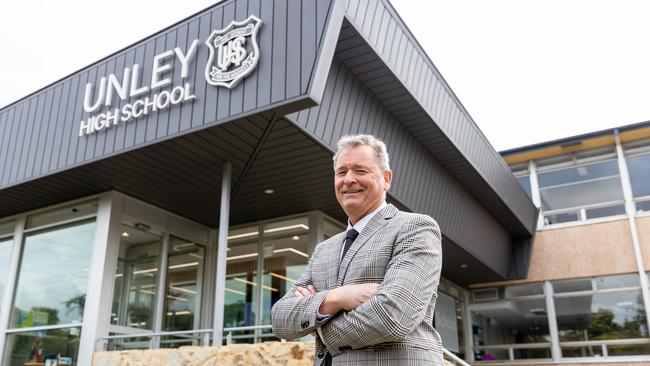
Rolton says the school responded “very quickly” before it had a chance to “catch on”, with parents and teachers sent advice and fact sheets to help deal with students exposed to the “extreme sexist, misogynistic and toxic views” of Tate.
After a local news report, Rolton, 63, has since had calls from schools as far afield as the United Kingdom, asking about how he dealt with the issue and the Tate resources he used.
“In the old days, some behaviour or trend would crop up in a district but, with social media, it’s across the world. That’s the modern world with the internet,” Rolton says.
“You can share things so easily on social media and this material is being shared everywhere. It really highlighted how many students had seen these TikTok clips. Young boys see the funny side of it but they don’t see the impact of it.”
Smith says he had no idea who Tate was until 2021 when he was driving in a 12-seater bus with boys who were “utterly obsessed” with Tate, his content and the things he was saying. And it’s been “ongoing ever since”.
Smith did some research and admits he could “sort of align” with some of Tate’s content. “Any male can resonate slightly with some of the things he says which is why it’s attractive to young men. But the actual end message is so out of line,” Smith says.
“We are big on fitness and investing in yourself and Tate is all about that and being a strong, independent person. I agree young people should be proud of who they are, the way that they look and that they should invest in themselves.
“But that’s where I draw the line. Tate believes that investment in yourself should look like, ‘Anyone who gets in your way, you steamroll over the top of them. You’re the beast, you’re the greatest human who has ever lived.’
“We say leadership is about doing good things in the community, being proud of your actions, proud of the person you are, giving people a hand up, helping people around you – that’s what makes you a good person.
“All we do is help young people build a standard they can live by, that’s it. It’s the void they have that they have been filling with all this content online.”

In Queensland, Glenn Azar is passionate about his work in youth development.
Through his Building Better Humans Project, based out of his Brisbane gym Project 180, he also works with boys aged 11-17 and, in fact, mentored Smith with setting up his own program in Tasmania.
Azar’s Bro Camp aims to empower boys to hold high personal standards, increase their self confidence and communication skills and understand how their behaviour, words and actions impact those around them.
He also runs Aella Camp for Girls, teaching the same things as well as setting standards for how they’re treated by others. He has had about 3000 young people come through his programs over the past 2.5 years.
Azar, 50, a former soldier, of Newstead, in inner Brisbane, says teenage girls on his programs first brought Tate to his attention, saying they were disgusted about his massive online following and also that boys at their schools were copying his behaviour.
“My experience with young people is that social media is like the real world to them and they all want attention and to be known,” Azar says.
“Social media is not going anywhere. So rather than thinking of it as the enemy, how can we put better information in young people’s hands so they make better choices?
“You have to counteract the Andrew Tates of the world because he is not going to be the only one. The next guy will pop up.”
Azar, who also does some school talks and mentoring of school teachers, worries this generation of kids is being let down because the issue of social media use is seen as too big, too difficult.

He has a vision of incorporating youth development programs into schools at a grassroots level with “real people talking to real people”.
But it’s a plan, he says, that requires a long-term vision and investment from the government.
“I know there are many people around the country teaching similar skills to our young people and it frustrates me to watch them do this on the tightest of budgets with little to no funding,” Azar says.
“Cancelling Andrew Tate is one thing but offering a genuine and productive alternative is a longer-term solution that requires investment, which in turn relies on governments having a long-term vision, well past a, ‘What will win me the next election?’ approach.
“I say that with no disrespect but we certainly would benefit from a longer-term approach to help our next generation step up and lead our country into the future.
“That’s the role of each generation – to impart knowledge on the future generations and give them the support to become the best versions of themselves possible. Raising our next generation is something we all bear responsibility for.”
Andrew Tate is not the first of his kind, nor will he be the last. There have been others to have emerged out of the manosphere and into the mainstream media.
Deakin University’s Associate Professor Joshua Roose, a political sociologist and expert in extremism, says Tate is the latest in a “long line of misogynist influencers” who have used new technologies and social media to spread their messaging but also to profit from it. Tate is one of the first to gain a mass, global following.
Roose, 42, says there is a global backlash against women and feminism.
“There are issues of men feeling marginalised, of a sizeable number of men feeling like the world is passing them by,” he says.
“We have an economy now where women have far more equality because of their intellectual capacity in a knowledge-based economy and anti-discrimination legislation.
“There is an entire demographic of working men who feel like the world no longer works for them in the way that it did for their fathers and grandfathers.
“It drives this resentment and this nostalgia for this lost past when men ran the world, when men were heads of the house, where only men had to work.
“It’s the idea that feminism has gone too far and is antithetical to the natural order, that men need to reclaim their place at the head of the house and head of society, that women need to go back home, have babies, be submissive, do the housework and support men.
“That’s the basic crux of a lot of extremist movements and political movements now.’’
The anti-feminist movement is also “gaining momentum”, with the emergence of far right populism in politics in Europe – for example in Poland, Hungary and Russia – and with recent former presidents Donald Trump (USA), Jair Bolsonaro (Brazil) and Rodrigo Duterte (Philippines), well known for making regular sexist and misogynist comments.
“This is a global issue and a global challenge,” says Roose.
“We have Christian nationalism emerging in America tied into Roe v. Wade anti-abortion activism that’s now hit the US Supreme Court. (Last year, the US Supreme Court declared the constitutional right to abortion, upheld since 1973, no longer exists.)
“So there’s a religious dimension to many of these groups – this idea that the natural order is for women to be subordinated in the home.
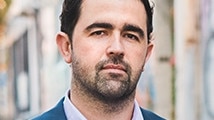
“This dystopian vision of the future of women and reproduction … Islamic State talked about women belonging in the home as breeders and producing the next generation and gave it a religious dimension. Far right extremists have almost identical views.”
In October, Tate claimed to have converted to Islam and, this year, carried a copy of the Qur’an into Romanian court, boosting his Muslim fanbase.
There are now a growing number of Muslim voices online, worried Tate is indoctrinating Muslim boys with his sexist rhetoric that is at odds with the religion.
Anti-female sentiment has also been driven by societal changes such as declining membership of trade unions – that gave a sense of solidarity to working men – and church attendance – that provided a sense of community – which is today only about eight per cent, well down from the 50-60 per cent it once was.
“These institutions where men came together with their families and the wider community, that gave them a self of self and belonging, are really no longer an option. Social media fills that vacuum,” Roose says.
“There are these online communities, like the manosphere, where some people do feel a bit more belonging.”
The manosphere can be divided into five main movements: Men’s Rights Activists who bemoan how society has moved against men, that the world is no longer fair for them and that men are now subordinated to women; Men Going Their Own Way (MGTOW) who reject women entirely, see women as using men for material goods and that they are only there for sex and nothing else; Pick up Artists who aggressively try to pick up women with manipulative techniques; Anti Feminist Influencers, men (and some women) who talk about how hard done by men are and how hard their lives are; and Incels (involuntary celibates) who blame women and society for their lack of sexual success and harbour a profound sense of grievance against women.
Roose says studies show many boys are forming their sexuality and their sense of what sex is through “unadulterated access” to pornography, despite age verification measures for some content on major websites such as YouTube.
“There is unregulated access to young people through mechanisms like TikTok, Instagram and other forms of social media that reach in and are hitting kids in their bedrooms,” he says.
“Where once boys at school might have been exposed to pornography in the form of magazines, now they literally have access to extreme pornography and extreme misogynistic material on their mobile phones or other devices at school or at home in their bedrooms 24/7. It’s historically unprecedented.”
And on this new road today’s youth are travelling, we are yet to see where the
story ends.
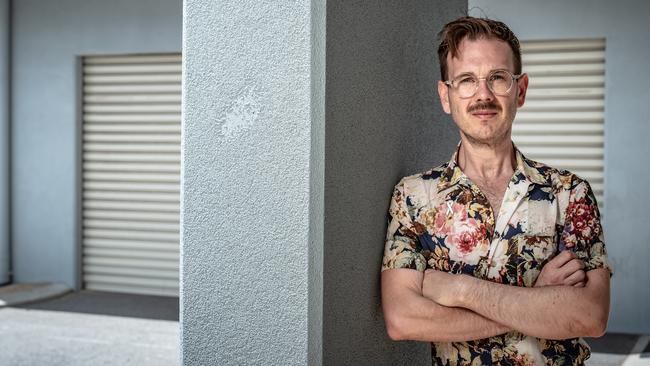
HOW TO TALK TO YOUR SON
White Ribbon Australia’s Allan Ball, right, says Tate’s messaging has “hooked into the collective minds of young men’’. This is his advice to parents:
● Be a proactive parent. Remain curious about children’s interests and guide them without taking away their cognitive autonomy.
● Create a safe and non-judgmental environment. Let children know you are there to listen without judgment and that you will support them in any way you can.
● Encourage open communication. Encourage children to talk about their feelings and thoughts on abuse and violence towards girls and how they may have been influenced by messages from people like Andrew Tate.
● Educate and provide accurate information. Educate children on the consequences of abusive and violent behaviour and provide them with accurate information on the topic.
● Be active role models. Model healthy behaviours and attitudes towards women and relationships to help counteract harmful messages young men may have received.
● Don’t shy away from strong opinions. We cannot dilute, deny or discount our responses. What Tate says is not OK and we should not minimise his impact.
Originally published as Aussie men battling to save young men from rise of toxic masculinity


